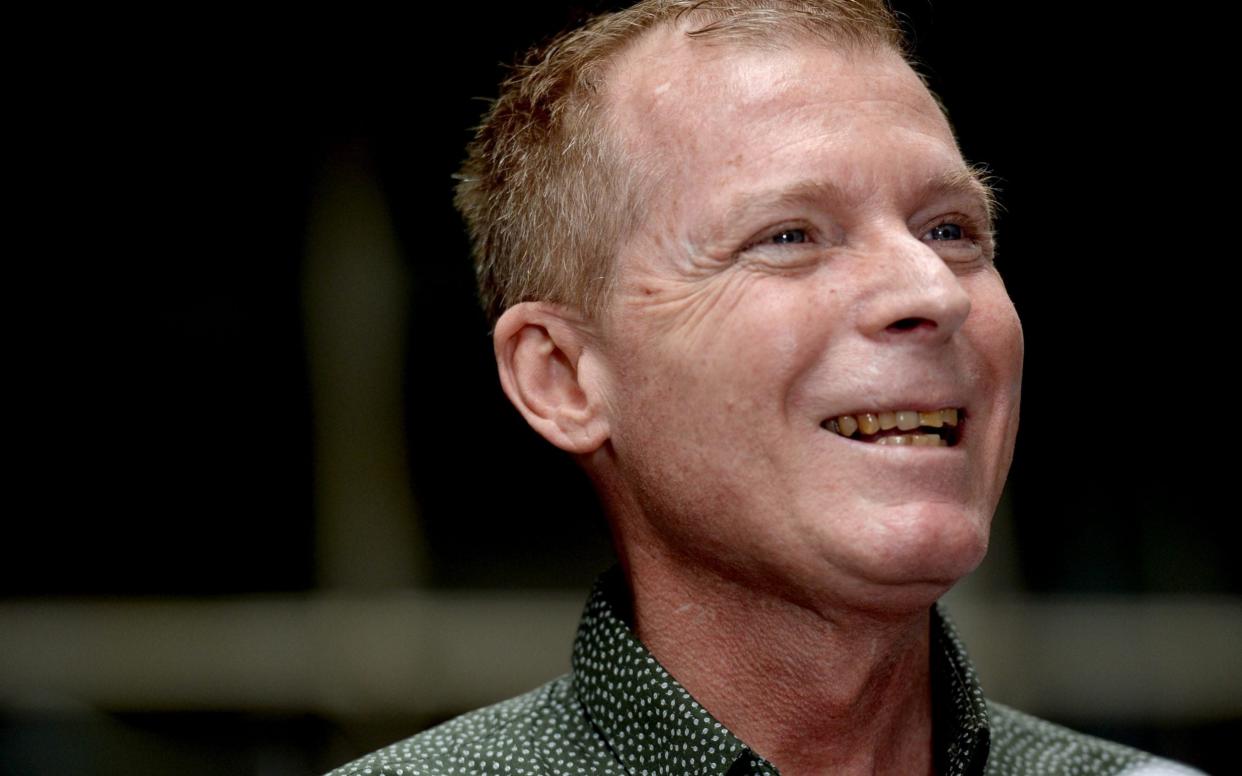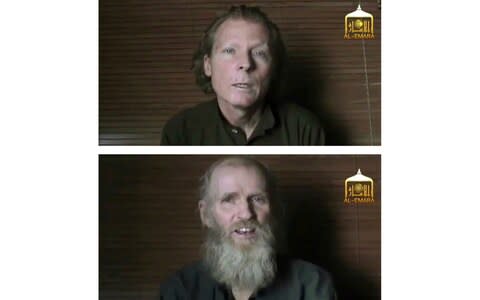Australian Taliban captive says guards were 'lovely people'

An Australian lecturer held hostage by the Taliban has said some of his guards were "lovely people" as he disclosed American special forces launched six unsuccessful rescue bids to free him.
Timothy Weeks spent more than three years locked up, often in the dark and underground, after he and his colleague Kevin King were seized in Kabul.
In his first public appearance since he was freed in a prisoner swap, the 50-year-old said he believed US Navy SEAL teams had launched repeated rescue missions, sometimes missing their targets only by hours.
In one incident, he was bundled into a tunnel beneath his prison as fighting erupted above. His captors told him they were under attack by Islamic State group, but he said he now believes it was a US raid.
"I believe they were right outside our door,” he told a press conference. “The moment that we got into the tunnels, we were 1 or 2 meters underground and there was a huge bang at the front door. And our guards went up and there was a lot of machine-gun fire. They pushed me over the top into the tunnels and I fell backwards and rolled and knocked myself unconscious."

Mr Weeks and Mr King were freed in return for three senior Taliban commanders last month. While he thanked Donald Trump and Australian prime minister Scott Morrison for his release, he praised the compassion of some of his captors.
"I don't hate them at all," he said. "And some of them, I have great respect for, and great love for, almost. Some of them were so compassionate and such lovely, lovely people. And it really led me to think about ... how did they end up like this?"
He added: "I know a lot of people don't admit this, but for me, they were soldiers. And soldiers obey the commands of their commanders. (They) don't get a choice."
Mr Weeks, from Wagga Wagga in New South Wales had been working at the American University of Afghanistan for only three weeks when he was taken in August 2016. Mr King remained in hospital, Mr Weeks said. The 63-year-old had appeared dangerously frail in hostage videos.
The two men were frequently moved and were held captive in both Afghanistan and Pakistan he said. He learned pashto, the language of southern Afghanistan, during his captivity so he could talk to his guards.
His ordeal had had "a profound and unimaginable effect on me," he told reporters. He had always had hope that he would be freed, but at the same time, there were occasions when he felt his death was close, he said.
"At times I felt as if my death was imminent and that I would never return to see those that I love again but by the will of God I am here, I am alive and I am safe and I am free.”
The sight of two US Black Hawk helicopters at the site of the hostage handover had been an enormous relief.
"From the moment I sighted both Black Hawk helicopters and was placed in the hands of special forces, I knew my long and tortuous ordeal had come to an end," he said.
The two captives were swapped for senior Taliban commanders held by the Afghan government in an exchange designed to build trust and revive talks to find a political settlement to the country's conflict. Mr Trump last week visited Afghanistan to spend Thanksgiving with US troops and said talks were back on.

